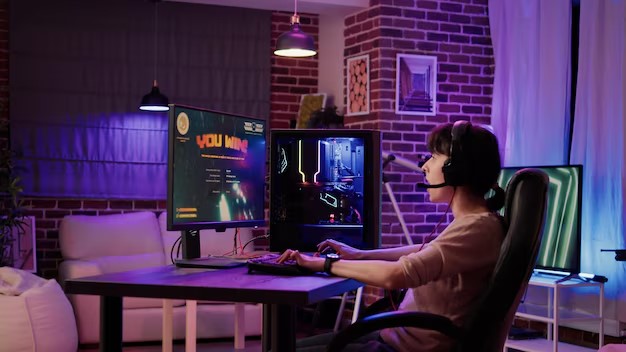Exploring the Social Side of Online Gaming: Community Play and Multiplayer Features

Online gaming has evolved from a solitary activity into a thriving social experience. With the advent of advanced technology and high-speed internet, players worldwide can connect, collaborate, and compete in virtual environments.
This transformation has made online gaming a powerful platform for social interaction, where community play and multiplayer features play a central role.
In this article, we will explore how online gaming fosters social connections, the impact of community play, and the significance of multiplayer features in creating engaging experiences.
The Rise of Online Gaming Communities
A New Era of Social Interaction
Online gaming communities have grown exponentially over the past few years, becoming one of the most vibrant and diverse social spaces on the internet. These communities are not just about playing games; they are about forming relationships, sharing experiences, and building a sense of belonging.
For many players, online gaming offers a unique opportunity to connect with like-minded individuals who share their passion for gaming.
One of the key aspects of online gaming communities is the shared experience of gameplay. Whether it’s teaming up to complete a challenging raid in a role-playing game or strategizing with teammates in a first-person shooter, the collaborative nature of online games brings players together.
This shared experience creates bonds that can extend beyond the virtual world, leading to long-lasting friendships and connections.
The Role of Social Media and Streaming Platforms
Social media and streaming platforms have also played a significant role in the growth of online gaming communities. Platforms like Twitch, YouTube, sbobet, and Discord have become hubs for gamers to share content, watch live streams, and engage in discussions about their favorite games.
These platforms provide a space for gamers to connect with others, share their achievements, and stay updated on the latest gaming trends.
Moreover, streaming has given rise to gaming influencers and content creators who have built massive followings by sharing their gameplay experiences. These influencers often foster communities around their content, where fans can interact, exchange tips, and participate in community events.
This phenomenon has further strengthened the social aspect of online gaming, turning it into a shared cultural experience.
The Impact of Community Play on Gaming Experiences
Building a Sense of Belonging
Community play is at the heart of online gaming, where players come together to achieve common goals.
Whether it’s completing a mission, participating in a tournament, or simply hanging out in a virtual world, community play enhances the gaming experience by adding a social dimension. For many players, being part of a gaming community provides a sense of belonging and identity.
In massively multiplayer online games (MMOs) like World of Warcraft or Final Fantasy XIV, community play is essential. Players form guilds, join factions, and participate in large-scale events that require teamwork and coordination.
These activities foster a sense of camaraderie and mutual support, where players rely on each other to succeed. The bonds formed through community play often extend beyond the game, with players organizing meet-ups, attending conventions, and maintaining friendships in real life.
Collaboration and Teamwork
Collaboration is a key component of community play. In many online games, success is often determined by how well players can work together. This is especially true in games that require strategic planning, communication, and coordination.
For example, in team-based shooters like Overwatch or Apex Legends, players must collaborate with their teammates to achieve victory. Effective communication and teamwork are crucial for success, as players must coordinate their actions, share resources, and adapt to changing situations.
Community play also encourages players to develop social skills such as leadership, negotiation, and conflict resolution. In a guild or clan, players often take on roles and responsibilities that mirror those in real-life organizations.
Leading a raid, managing resources, or mediating disputes requires a level of social interaction that goes beyond the game itself. These experiences can help players develop skills that are transferable to real-world situations.
The Significance of Multiplayer Features in Online Gaming
Enhancing Engagement and Longevity
Multiplayer features are a defining characteristic of online gaming, providing players with a dynamic and engaging experience. Unlike single-player games, where the experience is often linear and finite, multiplayer games offer endless replayability.
The presence of other players creates a constantly evolving environment where no two games are ever the same. This unpredictability keeps players coming back for more, as they are continually challenged by new opponents and situations.
Multiplayer features also extend the longevity of online games. Developers can introduce new content, such as maps, modes, and characters, to keep the game fresh and exciting.
This ongoing support encourages players to remain engaged with the game and the community for years. Additionally, multiplayer games often feature progression systems, leaderboards, and achievements that provide players with goals to strive for, further enhancing the long-term appeal of the game.
Conclusion
The social side of online gaming has transformed the way people play and interact. Through community play and multiplayer features, online games have become more than just entertainment; they are platforms for social connection, collaboration, and competition.
As technology continues to evolve, the social aspect of online gaming will likely become even more integral to the experience, fostering deeper connections and creating new opportunities for players to engage with each other.



